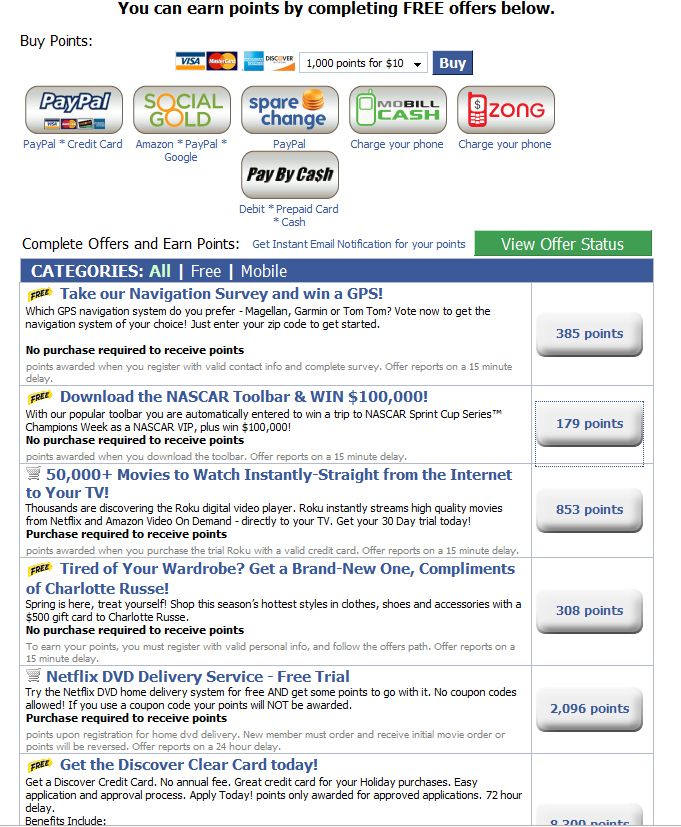Virtual Goods Are Becoming A Major Market
Since the inception of virtual goods on Facebook, in Februrary 2007, the demand has rapidly increased. Facebook apps users play many of the thousands of apps available. Often the games that the users play are games that have shops that require points to purchase virtual goods. Why do the users want points? Simply to have something that will make the game more enjoyable, or enable them to attain a higher score. Why do app owners/developers offer virtual goods? The apps make money solely from either advertisements, or the better monetezation method: virtual goods.
Plus, users love virtual goods since many times in-game advertisements are eliminated, making a more user-friendly experience. Thus, users are happier, and more likely to engage in the virtual offers presented to them. Virtual goods are becoming the preferred way to monetize social network applications. This is awesome news, considering that just last month (April) Facebook reached an astounding mark of 200 million active users.
So great, another growing opportunity to advertise online, but why is this important? The most important part is that the virtual goods/offers are largely coming from performance marketing advertisers. The same offers that are offered in Facebook apps are being published by affiliates elsewhere on the web. However, most affiliates are unaware of this new trend or don’t see the volume. Performance marketing is already there, now just find your publishing spot in this growing market!
An example of virtual offers in the Are YOU Interested? Facebook application-

Down the road-
“The virtual goods economy faces hurdles. For starters, many of the offers themselves reek of scams — like ringtone sellers who don’t tell users that their mobile phones are going to be billed every month even if they don’t buy more ringtones. A longer-term risk is that people who take offers now might not want to take them later. There are only so many credit card offers that any one person is going to want.
But the dynamic at play — incorporating payments and offers into games — looks like it’s here to stay. For users, offers can be a win-win. I might think that getting a new pistol in Mob Wars will make my friends think I’m cool, and help me beat them at the game, so any way I can get that pistol is potentially good for me. If getting that pistol means signing up for some Netflix rentals at the same time — and if I already want to rent some movies anyway, then so much the better that I do it in the process of getting the pistol. More advertisers are looking at offer-based advertising, and if these companies can really nail the consumer-goods market, you can see how offers might get a lot more valuable. Teenagers might re-up on acne medication as they re-up on ammo, one day.” – Eric Eldon of VentureBeat.com
I hope that isn’t too sententious, but really get involved with virtual offers in apps now, because they are serious money and a viable performance marketing opportunity.
Oh and by the way, “Facebook Money” is now the #2 Trending Topic on Twitter right now.

Pingback: Virtual Goods Evolves Again | jmarbach.com()